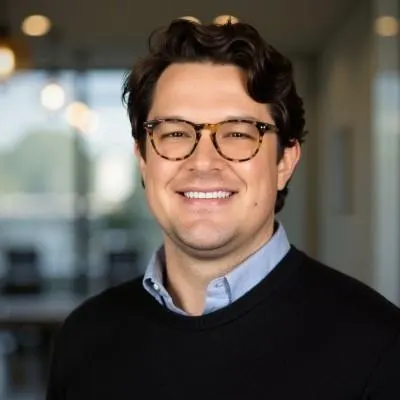Copyright forbes

Matt James is the Executive Vice President, CFO, and Chief Acquisition Officer at Oakbridge Insurance. This specialty middle market insurance broker combines deep community relationships with the resources of large, multinational brokerages. The company offers best-in-class solutions and service to small and mid-size businesses and individual clients in its footprint, which is in the southeast U.S. Oakbridge Insurance is a top 50 insurance brokerage in the U.S. and a leading regional insurance and risk management firm. Backed by a people-first culture and powered by a unique partnership model, Oakbridge delivers customized P&C, benefits, and specialty solutions across industries. Matt and I discussed how his history major turned into an interest in finance, Oakbridge’s impressive trajectory since its launch in 2021, what it’s like to blend “small-town values” with corporate efficiency, the challenge of building a thriving company in today’s complex financial landscape, and more. Matt James leverages his unconventional path—from history major to investment banker to CFO—to lead Oakbridge Insurance's rapid growth. Oakbridge Insurance Matt James’ upbringing in small-town North Carolina, in a town called Advance, was the ideal backdrop for the role that he has today at Oakbridge Insurance. Surrounded by a strong sense of community with an emphasis on relationships, he saw that dynamic prosper, both as a kid and in his role as Executive Vice President, CFO, and Chief Acquisition Officer at Oakbridge Insurance. But his career aspirations were not always centered around finance. When he attended Wake Forest University for his bachelor’s, he studied (and graduated with a degree in) history. But James felt a pull to business during his junior year and decided to attend a summer program. In his senior year, he declared a second minor and continued with a fifth year through a master’s in business program. The decision was the right one–James describes his trajectory as “off to the races” after attending the summer program–but he was met with a unique challenge upon graduating. “Coming out of college in 2008 during the great financial crisis was an interesting time to be in the market as a first-time employee,” he said. MORE FOR YOU James did find a job right away, first working as an analyst and then venturing into investment banking. His unique background in history gave him a competitive edge–his hunger to learn. It also led him to one of his most important mentors. “My associate at our investment bank, Will Brown, who also went to Wake Forest with me, was probably the biggest influencer on my career,” James explained. “Mostly because he had the patience to educate me while working through live deals in that investment banking environment. I don’t think either of us considered it a true mentor-mentee relationship. Over those three years that we worked together, he was absolutely critical to my success.” The relationship laid the groundwork for what he could do. James’ father also served as an example growing up. His career spanned more than 50 years across the government and private sector, and provided the example of a strong work ethic, tenacity to see a project or problem through, and an unlimited appetite for work. Those values were critical in shaping the CFO that James is today. His career in its early chapters involved a focus on self-learning, gaining on-the-job experience, and training in fast-paced environments. He surrounded himself with more experienced people, considering it an ideal chance to benefit from the knowledge transfer downstream. One particular experience tested his readiness and appetite for the CFO role. “When I moved from an investment banking role over in-house to a private equity role as an investor, one of our first transactions that we closed was a portfolio company where the CEO and CFO were retiring at the time of the transaction,” James said. “I got to sit in that head of finance seat by default when we acquired that business for really six months until we identified a new CFO. That experience, being hands-on, being in the weeds, really helped me get a love for the business and understand the operations side. That’s when I finally transitioned into a full-time operating role at our prior business, as head of finance, and now as CFO and chief acquisition officer at Oakbridge. It was certainly an evolution.” It was not a direct path from Big Four accounting to in-house CFO, but it displays how many paths there are to get into the seat. It also highlights James’ different strengths–he considers his style very strategic–and displays how diverse the CFO job is compared to even 10 years ago. It’s what James refers to as a differentiated mindset. It involves a strategic, problem-solving mindset rather than pure execution and technical expertise. The diversity of background helps him to understand how operations work with accounting, marketing, and sales. He believes that in today’s environment, wearing all of those hats in some way is critical to being successful in the CFO seat. It also helps to make James’ relationship successful with Robbie Smith, Oakbridge Insurance’s CEO. James and Smith had previously worked together at Prime Risk Partners, which helped to make the partnership at Oakbridge Insurance a strong one. “He’s one of the great leaders and mentors in the insurance brokerage space,” James said. “We have a very symbiotic relationship where he has, I’d say, the subject matter expertise and insurance, and combining that with my M&A and finance background, which helps us make a very powerful team, particularly when we’re in front of potential acquisition targets.” As a result of being out in the field every week meeting with people who might want to be a part of the Oakbridge organization that may want to be a part of the Oakbridge organization, their relationship is close-knit. Smith is the first and last person James speaks to every day at the end of the workday. They function as a single unit, capitalizing on each other’s strengths. Where Smith drives culture, develops strategy, and sets the vision for the broader organization, James supports that alongside our other C-suite leaders with storytelling through that lens of data. The organization has experienced monumental success. Although relatively new in the marketplace (its first day of operations was January 1, 2021), the business has grown from $0 in revenue in 2020 to about $150 million today, putting it in the top 50 U.S. brokerages. Although the tenure has been short, it has built up a number of legacy businesses and agencies–some that have been in their local communities for more than 100 years. It’s the focus on communities and relationships that permeates the business. Relationships and prioritizing people are also cornerstones of Oakbridge’s employee culture. On the website, People, Process, Purpose–with people in first place–aren’t just words, they are words to live by. “Internally, we spend a lot of time talking about cultural and relationship building,” James said. “Identifying the right talent early on has made a huge difference in our success because we have grown very rapidly through both acquisition and organically. For our business, with enough time, you could train anyone on the insurance side of the business. You could train most people on the accounting side of the business. To me, focusing on identifying folks that have the right values and have the right drive is more critical than anything else to which you can speak.” At Oakbridge, those values include problem-solving, a sense of urgency, a high sense of accountability, and, for the finance and accounting team, accuracy and timeliness of reporting. The company also values a proactive mindset and the ability to translate the accounting language to various leadership groups, finding the storytelling aspect hugely important. As the company has grown through partnerships and mergers and acquisitions, there has been an element of acquiring cultural complexity, too. Some businesses that have been added to the company have been around for more than 100 years in their local communities. “When we are looking at an acquisition, our four key criteria are if they are culturally, financially, operationally, and strategically accretive,” he explained. “The number one thing that we have to check the box on is culturally accretive. Through that, if we cannot check the box that we have a like-mindedness about how they operate the business, how they think about engaging with clients, and how they think about a highly accountable service organization, we’re passing on that deal. Our process to make sure we have the right people in the organization comes very early in that partnership discussion.” They want to have people and organizations that drive that culture, not just today, but long term, as they think about perpetuating the business to the current generation and next generation of employees and shareholders. Factors that the company has identified to drive the business forward include everything from data (Oakbridge recently completed a major data evaluation project in 2024) to revenue-per-employee KPIs and encouraging entrepreneurial spirit at the local office level. Outside of work, James is a husband and father and remains connected to Wake Forest. Since he graduated, he has served on its market insights board to help people who are coming out of the program without undergrad background in business. It’s his way of giving back to a program that was valuable to him. “It was important to give back to my alma mater and spend a lot of time thinking about how to prepare students for the workforce,” James said. “What are the leading trends that we look for from a hiring perspective as an employer, and help those kids network and find their first role in the workforce? It’s also nice because it’s near my hometown. Going back to campus is always a treat.” For people who are not students at Wake Forest to benefit from that program, James shares his advice to the next generation on how to be successful–especially if their backgrounds are not traditional. “When there’s an opportunity, whether it’s in the finance function or elsewhere within the organization, raise your hand, especially when you’re looking at something for a cross-functional team or project,” he iterates. “The CFO role will continue to evolve into a more strategic position that partners with the CEO. Get involved, even if it’s outside your scope or your comfort zone. It’s a great way to build relationships and skill sets across different functional areas.” Editorial StandardsReprints & Permissions



